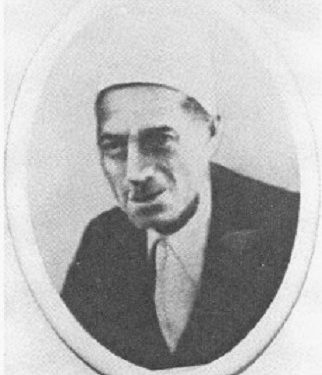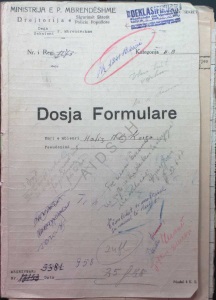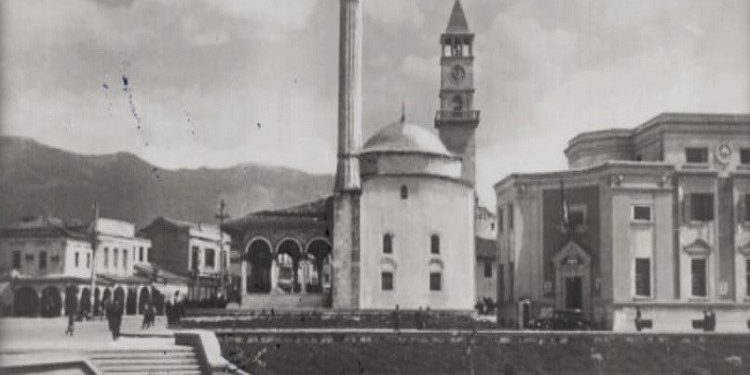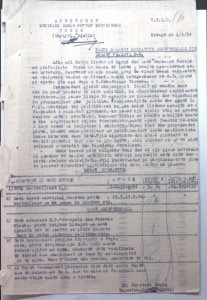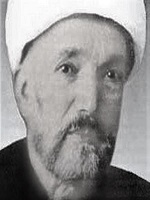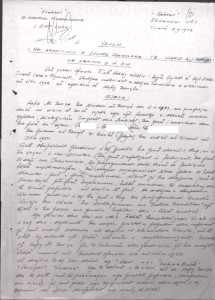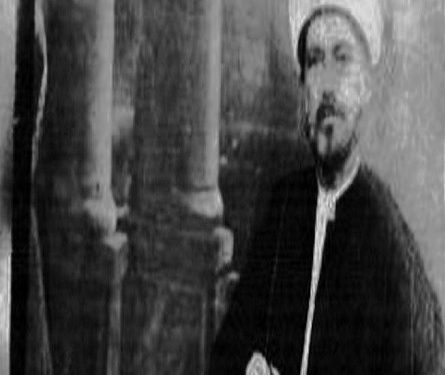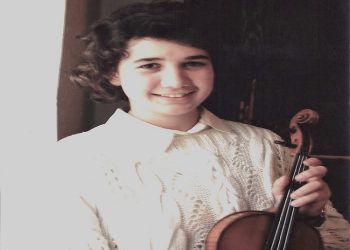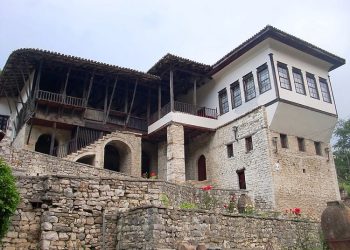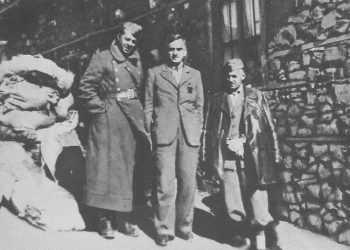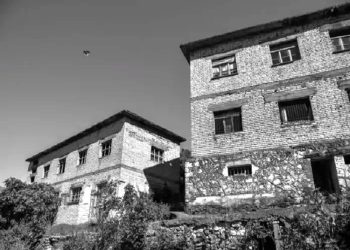Memorie.al / Convicted since 1945 and, until he died, Hafiz Ali Korça was put under the surveillance of the State Security, until after the eighties, when it was decided to close the file. His two sons were also sentenced as enemies, one to death, the other to prison and persecution, until he closed his eyes. Today, on this day of reflection, we bring to attention the Muslim clerics who have been monitored, politically punished and persecuted for years, and their precious contribution to the homeland, society and human values. Among the Hoxhallars persecuted by the invaders, by fanatics and communism, for their ideas, views and activity, is Hafiz Ali Korça, who grew up in a patriotic, religious and cultural environment, a pure Korça, he was made with conviction and basic principles that lifted up his name.
Hoxha persecuted
For this, in 1893, when he was 20 years old, he was exiled to Sinop, because while he was traveling on the Sofia-Istanbul train, his Albanian books, then banned, were seized. In 1900, he was interned in Anatolia, for the activity in the Korça School. After the Congress of Dibra, they destroyed his house. Then, Telat Pasha’s Cabinet sentenced him to death, but with intervention, he was pardoned. In 1924, he was expelled from the Supreme Council of Sharia. In 1925, he published the pamphlet “Bolshevism and the Destruction of Humanity” in Tirana.
Hafiz Ali Korça developed an intensive activity in several directions and mainly in the field of culture, religion and journalism. He has written a number of original works, in religious and secular prose and poetry. Among them stand out: “Mavludi” (1900), “303 words of Imam Ali” (Published in Korça, in 1910), “Holy history and the four caliphs”, (Published in Tirana, in 1931, p. 288), “Jusufi me Zelihane”, (Published in Elbasan, in 1923), “Gjylistani”, translation by Saadiu, (1918, “Seven Dreams of Albania”, poem, (Published in Tirana, in 1944), “Tafsiri i Qur’an”, (remaining manuscript, with a volume of 2000 pages, R.Z.) worked during the years 1920-1924, “Rubaijjati Khajjam” (Hajjam, translation by Omar Kajami, 1930-Reprint 1942, in Tirana).
School textbooks such as: “Albanian Primer” (1910), “Fe-Rrëfënjësi morali” (1914), “Grammar, Syntax Albanian-Arabish and speeches” (1916) are also of special importance. Hafiz Ali Korça also left a considerable number of manuscripts and translations. Hafiz Ali Korça, translating masterpieces, such as; “Gjylistani”, “Rubairat”, as well as “Jusufi me Zelihane”, made the great poets, such as Saadiun, Omar Kajamin, etc., speak Albanian.
Hafiz Ali Korça, who was among the first teachers of the first Albanian School in Korça and worked closely with Pandeli Sotir, the director of the first Albanian School in Korça. There he gave Islamic education free of charge. After the declaration of Independence, he was entrusted with important duties. He was an advisor to the Ministry of Education, General Director of that Ministry, Head of the Fatwa-min at the High Sharia Council in Albania, lecturer at the High Madrasah of Tirana, etc.
During his life, Hafiz Ali Korça collaborated with a number of figures and personalities who played an important role in the history of modern Albania, such as: Kristo Luarasi, Jusuf Turabi Kërçova, Pandeli Sotiri, Gjergj Fishta, Luigj Gurakuqi, Mati Logoreci , Sali Nivica, etc.
His life is a perfect example of the pious patriot, who does not share the word with the works of the poet who invites his colleagues to work for the motherland, not to abandon it.
***
Hafiz Ali Korca was born in Korca, in 1873, was educated in the most famous center of education during his lifetime, in Istanbul, and then returned to serve his country and people, first in his hometown, then in Tirana and, in various districts of Albania, until he passed away in the city of Kavaja, after a long exile, which the communist regime applied to one of the most well-known figures and personalities Albanian, as he was.
The period when Hafiz Ali Korça lived, studied and acted as a teacher, educator, patriot, religious personality, publisher, state official (former adviser to the Ministry of Education, as well as director general of this ministry), was one of the most important periods for the Albanian nation and people, in terms of politics, culture and national, patriotic and patriotic activities. It was the time of separation from the Ottoman state, and the beginning of a new era, with many vicissitudes for the state and the Albanian nation.
He studied and fought throughout his life for national independence and the unification of the Albanian lands. His religious and patriotic activities and activity for the time was a novelty among the Albanian people, mainly for his Muslim co-religionists, who initially viewed his movements and activities with suspicion and skepticism at the time, but as a man visionary that he was, his words, woven with a special artistic and stylistic skill, as well as comprehensible for the time, left their mark by being later proven in practice, and in many of his books, which contain a variety of writings and topics, are read and taken as a reference even to this day.
Unfortunately, the figure of Hafiz Ali Korça, even when he was alive, was overshadowed and damaged the most during the violent regime of the communist dictatorship in Albania, by the infamous system, which sought to eradicate everything religious and national of our people. His religious figure, as a wise and pious scholar, a man much loved by all Albanians at that time, by his countrymen, his students as well as various professors, was forcibly debased by the red dictatorship, causing to be forgotten during the period of the “prison” called Albania, but here, in a few lines, we will try to reveal some of its most important cultural, religious, educational and patriotic.
His education, not as a simple imam, but as a real scholar, equipped with various religious, patriotic, literary and scientific knowledge, make Hafiz Ali Korça a man with special talents for absorbing knowledge, as well as their transmission to the people. Hafiz Ali Korça received his first Islamic religious lessons in Korça, from his father Iljaz Efendi, where at the age of 12, he learned the entire Qur’an by heart and became a Hafiz. Then, for real scholarly religious knowledge, he went to Istanbul, where he expanded the range of his knowledge.
As the polyglot that he was, he learned Arabic and Persian in Istanbul, while he learned the basics of Ottoman (and Turkish) in Korça. Also in Istanbul, he learned the French language. Because of his knowledge of French, when Prince Vidi came to Durrës, on March 7, 1914, Dervish Hima and Hafiz Ali Korça each gave a speech in French, and Prince Vidi returned to them in the same language. After returning to Albania, he wanted to convey this broad culture which he gained in Istanbul among the Albanian people. One of the biggest movements in this direction, instigated by him, is the great effort and support he gave for the opening of Albanian schools, in all Albanian lands.
Hafiz Ali Korça, since he received the title of Hafiz, at the age of 12, then going to Islamic academic studies in Istanbul, made him live and devote himself to the principles and knowledge of the Islamic religion. In this way, he sacrificed his whole life for the divine truth, Islam, as well as for his country and people. In order to put into practice the great studies and knowledge he had received, he made his greatest contribution, apart from the various religious lectures he held in various mosques in Albania, by writing or translating Islamic study materials. , First hand. The initiation of the translation of some verses and surahs of the Qur’an by him (published in 1926), from Arabic to Albanian, was one of the greatest achievements for the presentation of the Qur’an in Albanian.
His professional ascension as a high Islamic religious figure was when he was elected as one of the members and Fatwa Emini of the Supreme Council of Sharia, from 1918-1924. Also, he has been a teacher for a long time, in the Madrasah of Tirana. His religious publications, such as; “Mavludi” (1900), “303 words of Imam Ali” (Korçe, 1910), “Fe Rrëfenjësi, morali” (1914), “Yusufi me Zelihanë” (Elbasan, 1923), and “Holy history and the four caliphs” (Tirana, 1931) were among the most beloved books for Muslim believers of that time. Likewise, we cannot leave without mentioning the many sermons (lectures) given by him in the mosque, as well as many of them published in the well-known magazines “Zani i Naltë”, “Islamic Culture”, etc., which were read with great pleasure by all the Albanians of that time.
The homeland of the clergy
Because of his free patriotic opinion, because he has always supported the national union of all Albanian lands, and because he has always strongly opposed Bolshevism, communism and atheism, considering them as one; “black prison” for the Albanian people, him and his family, unfortunately, he was always followed by the black fate of imprisonment and persecution, both by the Ottomans, who knew him as “Hoxha Latinxhi”, and by the Albanians, after the creation of the Albanian State, as well as from the dark and savage communist system, which imprisoned and exiled him, taking him recently to Kavajë, where he spent the last years of his life alone and away from his family of his life in this world, where he passed away in 1956.
They took this action to “disappear” his religious and national contribution, leaving no space for the progressive ideas of his intellectual caliber, for our nation and people, to be implemented in practice. He always fought with weapons, with knowledge and pen, for the unification of all Albanian lands in one state, as well as for the unification of Albanians against the Greek and Serbian chauvinists, and not for any particular ideal, such as that of the communists. Opposing Bolshevism and foreseeing the arrival of a “black cloud” for Albania and the Albanians, he hits it hard, since before the installation of the communist dictatorship, with the verses:
“Bolshevism never agrees
With the knowledge of Muhammad,
The keys will have the fight,
Find the Day of Judgment”.
As for his own sufferings, in a few lines, he mentions them very nicely, in one of the stanzas written in his important manifesto; “Seven dreams of Albania”. There, he says about himself:
“I tried for Albania
I risked my life
No telling how much I took off,
That the state recognized me as a crime”.
Another important patriotic activity of Hafiz Ali Korça is his participation in the Congress of Dibra, on July 23, 1909, where, in addition to him, many other prominent patriots participated, such as: Aqif Pasha Elbasani, Abdyl Bey Ypi, Dervish Hima, (to whom Hafiz Ali Korça dedicated a poem at the time he passed away). Hafiz Ali Korça’s speech in this congress was the main one, and Abdyl Ypi, in his book, “Congress of Dibra and Hafiz Ali Korça” (1918) and Haki Sharofi, have talked about this congress and its decisions. , in the book “Congress of Dibra”, left a manuscript, but published in 2009, in Tirana, by his son, Islam Sharofi. The well-known newspapers of the time in the Ottoman language in Istanbul, such as the newspaper “Sabah” (May 30, 1311 (1894) and “Aksham” newspaper (July 9, 1318 (1903).
Roald A. Hysa, has shared this persecution, persecution in communism, of Muslim clerics, noting in the newspaper “Drita Islame”, 2017, these facts: “A large part of our history was hidden by communist historiography and the persecution of the murders of well-known uncles, is exactly an important part that is not talked about or is talked about very little even today. With all the fanfare with which the 100th anniversary of Independence was celebrated, none of the figures of the Muslim Community were decorated or commemorated. The communist regime did not tolerate religions, because it considered them as alternative and competing ideologies for Marxist-Leninist policies and ideology.
Based on this, he fought with all possible means, the two main religions in Albania, Christianity and Islam. He considered all religious people as potential enemies and therefore persecuted them constantly. Initially, the religious were attacked and fought at the beginning of the seizure of power by Enver Hoxha and the Communist Party, being accused of being collaborators of the Nazi-fascist occupier or even of the Zogollian regime. This was done to first minimize the anti-communist resistance and then to go towards its elimination. Undoubtedly, from these kinds of policies, and especially from class hatred, from the very first moments, many Khoxallars, well-known local or even national figures have suffered.
Even before they took power, the communists fought and killed them mercilessly, simply because they were opponents and spoke and made propaganda against the communists and their spiritual connections, with the Serbo-Slavic and Soviet Marxist-Leninists. To illustrate it more clearly, here we are giving two cases, that of Selim Brahje, popularly known as Hoxha i Sauku, and the imam from the village of Vrajte i Peshkopija, Seit Idriz Shehu. Both of them were killed before the Second World War ended and the communists took power. Hoxhe Selimi was killed in August 1943, at the entrance of the Sauk mosque (where he served) in the first days of the month of Ramadan. The reason for his murder was because he had refused to cooperate with the communists and serve politically for them, when members of the Peza unit had asked him to go with them.
While Hoxhe Seiti told the villagers in free conversations, that; the communists will take their land and, they will take all their property, just like it happened in the Soviet Union, and they would suffer for their livelihood afterwards. He is tried and killed on the charge of; “agitation and propaganda” against the National Liberation Front, by a partisan court of the 5th Assault Brigade, with commander Shefqet Peçin, on August 26, 1944, before Albania was “liberated” yet. With the coming into force of the communist regime, the persecution of the opposing Hoxhallars officially began, where all those who had served in the high ranks of the Muslim Community, such as Hafiz Sherif Langu, chairman of the KMSH, Hafiz Ismet Dibra, director, were arrested and imprisoned of the Tirana Madrasah, Hafiz Ali Korça, Hafiz Ibrahim Dalliu, as well as many other elders.
Many muftis were also arrested, such as Hafiz Mustafa Varoshi, who died in prison from severe torture by the Security officers, Hafiz Xhemal Naipi, former speaker of the Albanian Parliament, who would die in communist prison cells and to this day, it is not known where he is buried. In the following, we are publishing a list of Hoxhallars killed or shot by the communist regime and who died in prisons from various tortures. This list is temporary at the moment, because we think that many facts that were kept secret by the communist regime, for various reasons, have not yet come out of the archives.
List of Khoxallars killed by the communists
Hoxha Selim Brahja – known as “Hoxha i Sauku”, killed in August 1943, by the Peza Ceta unit.
Imam Seit Idriz Shehu, from the village of Vrajte i Peshkopija, finished his studies in Prizren with Hafiz Shabani. He taught in mosques and was imam in the villages: Deshat, Borovjan, Grevë and Zimur. He was tried and killed on the charge of “agitation and propaganda” against the National Liberation Front, by a partisan court of the 5th Assault Brigade, with commander Shefqet Peçin, on August 26, 1944, before Albania was “liberated” yet.
Hafiz Mustafa Varoshi, former mufti of Durrës, imprisoned in 1945 and died in prison from inhumane torture in 1948.
Imam Liman Shabani – died in prison in 1945.
Imam Met Troci – first sentenced to death and then reduced to 30 years in prison. He died in prison on May 20, 1947, under unknown circumstances.
Imam Ahmet Hysejni – is sentenced to be shot and then sentenced to life imprisonment, then dies in prison, in 1945, under unknown circumstances.
Hafiz Xhemal Naipi – imprisoned in 1947. He died in the notorious prison of Burrel, in 1955, at the age of 77, without his family even knowing about his grave.
Hoxhë Jakup Dusha (Tropojë) – In his file it is said that he was arrested together with 6 other people, on February 3, 1953 and died in the interrogator’s office that same year, from inhumane torture in the Great Prison of Shkodra.
Shyqyri Hoxha (Muftiu) – former mufti of Peqin, shot in 1946, accused of being an “enemy of the people”.
Salih Vuçiterna – former director of the Muslim Community Endowments office, was imprisoned and died in Burrel prison in October 1949.
Qazim Rroji (1915-1946) prays at the Mosque of Tepe and Koplikaj, Shkodër. Nationalist and participant in the Postriba Uprising, he was arrested and shot without trial on September 10, 1946. His grave is still unknown today.
Imam Halil Hoxha (1881-1946), originally from Bytyçi i Tropoja, is sentenced by firing squad and executed on the charges of “war criminal, collaborator of the Zogollian regime and the occupiers”, together with him, his wife Xhane Hoxha is also sentenced, with 5 years of imprisonment and two of his fellow villagers, Demush and Shaban Qerimi, with death, because they harbored him. The decision to shoot the three has also received the approval of Enver Hoxha. Memorie.al




